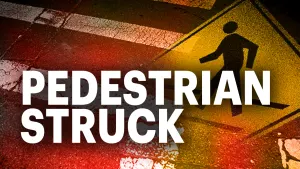More Stories
Uber and Lyft drivers are launching a new effort for better pay – and more transparency in how they’re paid.
But they face stiff opposition from ride share apps, who have argued Connecticut could become “the most expensive market in the country” for passengers.
UNEQUAL PAY?
Jeseinia Rodriguez is an Uber driver in New Haven. She and other drivers claim they see very little of what riders pay.
“They [are] charging the customer $60, $70. But then we get $18, $15 – or even $12 ,” she said. “We are the ones who got to fix the cars. We are the one who’s got to change the oil, change the tire. We’re doing all this stuff.”
Legislation to guarantee drivers 85% of their fares failed last year. Uber warned the bill could raise customer fares by 134% – and backfire on drivers.
“This reduction in trip volume may ultimately result in an overall decrease in driver earnings,” Uber senior policy manager Hayley Prim told state lawmakers.
NEW STRATEGY
But the Connecticut Drivers Union has a new argument for state lawmakers. CDU says ride sharing apps are costing the state millions of dollars in unemployment insurance, because drivers are considered “independent contractors” instead of employees.
“They’re not even paying taxes over here,” said Rodriguez. “This isn’t fair. Where is all the tax dollars is going?”
Connecticut’s neighbors are cracking down. In Massachusetts, a recent audit found the state lost out on $226 million in state benefits. In New Jersey, Uber agreed to pay the state’s unemployment trust fund $100 million. And in New York, both companies created a $328 million fund for workers. Drivers statewide are also guaranteed $26 an hour and sick time.
Uber did not respond to a request for comment Wednesday.
Lyft spokesperson C.J. Macklin released this statement:
"The overwhelming majority of drivers don't want to be employees, however we are always looking for ways to improve the driver experience. That's why just this year we've released a series of new offers and commitments aimed at increasing driver pay and transparency. This includes a new earnings commitment, more upfront information about the estimated dollar per hour rate of each ride, and an easier to understand weekly summary that breaks down where every cent of the rider fare goes. Now, drivers will always make at least 70% of the weekly rider fares after external fees."
CDU believes drivers should have the same protections as other workers.
“We think that drivers are already misclassified as ‘independent contractors’ by the companies and we don’t need to change the law to say that,” said attorney James Bhandary-Alexander, an advisor to the union. “We also want to address algorithmic discrimination, where the companies pay less to one driver than another. This is kind of like the issue you may have read about with the grocery store scanning people’s faces and charging them more if they think they can get away with it."
Rodriguez believes more drivers will flee Uber and Lyft, as well as restaurant delivery services like DoorDash, if they aren’t paid better.
“There’s nobody that wants to work for one hour, two or three dollars,” she said. “It’s getting really worse and worse and worse.”
More from News 12
1:04

Mother, child among pedestrians hit in separate crashes across New Jersey
1:40

Toll of Commuting: How much would Santa’s global commute cost? News 12 crunches the numbers
0:23

Car swerves and nearly hits house in South Farmingdale
0:14

SUV flips on its side after crash in North Bellmore
0:54

Bridgeport city bus strikes wall, 5 vehicles outside train station
1:36
